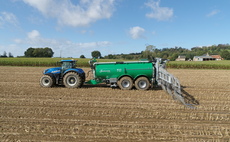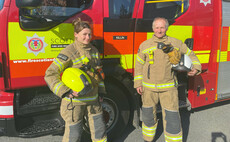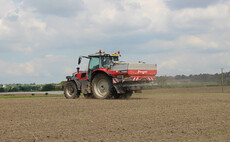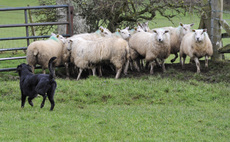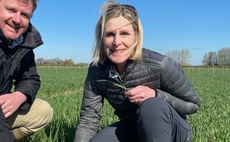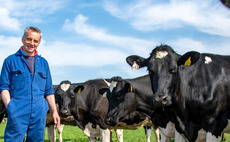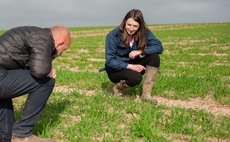
The awful reality is that, in the next 10 to 14 days, someone is likely to die on a UK farm if the latest year's unsafety statistics from HSE don't change. Will it be you? One of your family? A member of your workforce?
The sad, shocking and indeed shameful thing is that it keeps happening to someone. The farming press will report it. Those who know the victim will mourn, their lives changed forever. The rest of us may have an ‘oh no, not another' moment…then move on: still not wearing a helmet on quad bikes; still posting photos on social media of toddlers in a farm workplace; still taking shortcuts with machinery that we know we shouldn't.
My 85-year-old father-in-law is a hard-as-nails, self-made, still working, first-generation farmer. In conversation about this, he said 'if you've seen someone caught by a PTO shaft, you'll never forget it.' Six decades ago, as a farm worker in Lancashire, this happened between a potato harvester and his boss's brother. 'Did he survive?' I asked. The hesitant and unusually emotional reply: 'He died with his head in my hands.'
Aside from fatalities, 33 people a day sustained injuries on farms over the most recent three years for which stats are published. At last November's Midlands Machinery Show, one survivor of serious injury willing to talk about it was chairman of the National Association of Agricultural Contractors (NAAC) James Bannister.
At precisely 10.30am on Thursday, August 6, 1998, he was standing alongside his potato harvester before cleaning it ready for the next field, chatting with a tractor driver mate. 'My next memory is being dragged into the machine by the left arm, fighting for my life against it,' he said. 'As the elevator was just starting to bite into my neck, the other driver shut down my tractor.'
Despite massive blood loss, James remained conscious throughout. It took more than two hours for fire and rescue, and ambulance crews to get him out, with a surgeon alongside ready to amputate there and then. Instead, once James was freed, the decision was a nine-minute air ambulance ride to the Northern General Hospital, Sheffield.
To ram the point home, here's another gruesome detail. Air ambulances in 1998 were rather more crude than today. The stretcher had to be threaded through a tiny aperture underneath the helicopter tail, with no space for anyone to support the remains of James's left arm, stripped to the bone of flesh above the elbow. So with his good right hand, James had to hold his left one and the tattered remains of his arm stable while the crew loaded and flew him to hospital.
At the time, he'd been operating that harvester for five years and today is remarkably candid about why it happened: 'I knew full well what I should do before cleaning down,' he said. 'But I'd become blasé, complacent, taking my own safety for granted.' Asked whether he ever thinks, 'If only I'd been more careful…', he added, 'wouldn't everyone?'
From Lincoln, safety and first aid specialist Nigel Singleton wonders why farming doesn't have an equivalent of the Construction Skills Certification Scheme? 'The better trained and prepared you are, the less likely you are to be injured yourself, and the more capable you'll be if needed to help an injured colleague,' he says.
Whether wheeling a barrow or driving a tower crane, without a CSCS card you simply aren't allowed to work on a reputable construction site. Likewise, farmers have a serious responsibility to create a safety-first culture among family, workforce and visitors. Before every flight, an airline pilot has to complete their defined pre-departure checks, otherwise they'd be sacked. Are we in farming any different? Sadly for some, HSE's safety statistics continue to provide evidence that, to our shame, some of us are.








